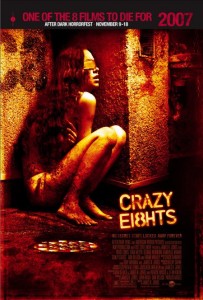 The upshot of all these Star Wars books lately is that after the next one, I’ll be caught up to the release schedule. Also, there are only two more after that one, so however you look at it, it ends soon by volume if not by calendar date. On to the 6th book, Inferno, where I am continuing to be amused by the Amazon reviews of the series. For five books, people have been complaining that the plot is moving along too slowly, and nothing is happening, and it’s lame. Now that we’ve come to the first book past the crisis point of the series, where events are spiraling rapidly out of anyone’s control, people are complaining that the writing used to be intelligent and character-driven and possibly philosophical, whereas now it’s flat and derivative. Luckily, I occupy a middle ground devoid of shrillness.
The upshot of all these Star Wars books lately is that after the next one, I’ll be caught up to the release schedule. Also, there are only two more after that one, so however you look at it, it ends soon by volume if not by calendar date. On to the 6th book, Inferno, where I am continuing to be amused by the Amazon reviews of the series. For five books, people have been complaining that the plot is moving along too slowly, and nothing is happening, and it’s lame. Now that we’ve come to the first book past the crisis point of the series, where events are spiraling rapidly out of anyone’s control, people are complaining that the writing used to be intelligent and character-driven and possibly philosophical, whereas now it’s flat and derivative. Luckily, I occupy a middle ground devoid of shrillness.
The truth is, the first few books were chock full of philosophy and character development, none of it outstanding in the literary sense but most of it quite good, and well above previous Star Wars fare. And those elements were important to providing a convincing fall from Jedi to Sith as well as to providing a plausible excuse for family and friends not to have acted sooner. Each incremental change wasn’t so bad, and it even seemed that an act as despicable as trying to destroy one’s parents’ ship could be forgivable in context, although obviously a sign of a mind darkened by circumstance. Now that Darth Caedus[1] has moved on to such actions as setting the Wookiee homeworld[2] to burn, well, you might say that’s a cartoonishly evil decision. But for my part, it doesn’t seem all that far out of line from the last such decision he made, and there has to be a point at which you take an action that is tactically as well as strategically sound but which people use as the catalyst to finally re-qualify you in their minds as the bad guy, no matter what they wish were the case. If you never do anything like that and are eventually able to bring peace and order to the galaxy regardless, then, well, probably nobody would oppose the Sith in the first place, right? The obvious parallel is to the destruction of Alderaan, and I’ll argue for hours that this was nowhere near as capricious and cartoonish as that.
Anyway, that’s what the book is mostly about. Now that Caedus has reached his turning point in the prior book, the remaining characters get the chance to catch up to the way the galaxy is these days and start closing ranks and drawing battle lines. Which means more space battles, more lightsaber duels, more pitched fights with blasters against menacingly-uniformed troopers, all the excitement that those early book reviewers were asking for. Both aspects have worked throughout the series, for me, but I’m not going to complain that the scales are tipping toward the exciting end of things. I do wish that one of the three authors of the series had a little bit more investment in R2-D2, but as complaints go, that’s pretty minor.
[1] Yes, he’s a full blown Sith Lord now. And yes, I’m finally able to allude directly to who I mean with still no fear of spoilers, just as though the original name would be one that more than a fraction of my readers had ever heard before.
[2] As Star Trek fans would call it. Kashyyyk for the sake of accuracy[3], but again, what fraction of my readers has heard that name? I feel confident that many of them have heard of Wookiees, at least.
[3] Did I know this prior to reading the book, down to the correct spelling? I did.[4]
[4] Still, ladies, I have a lot of good qualities!




